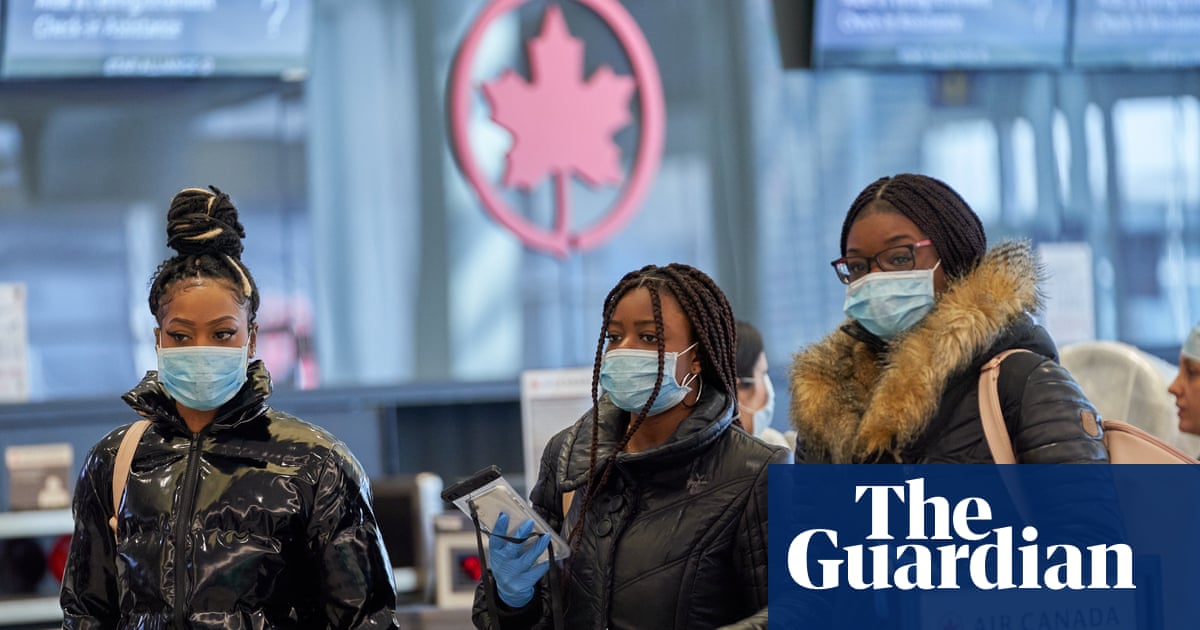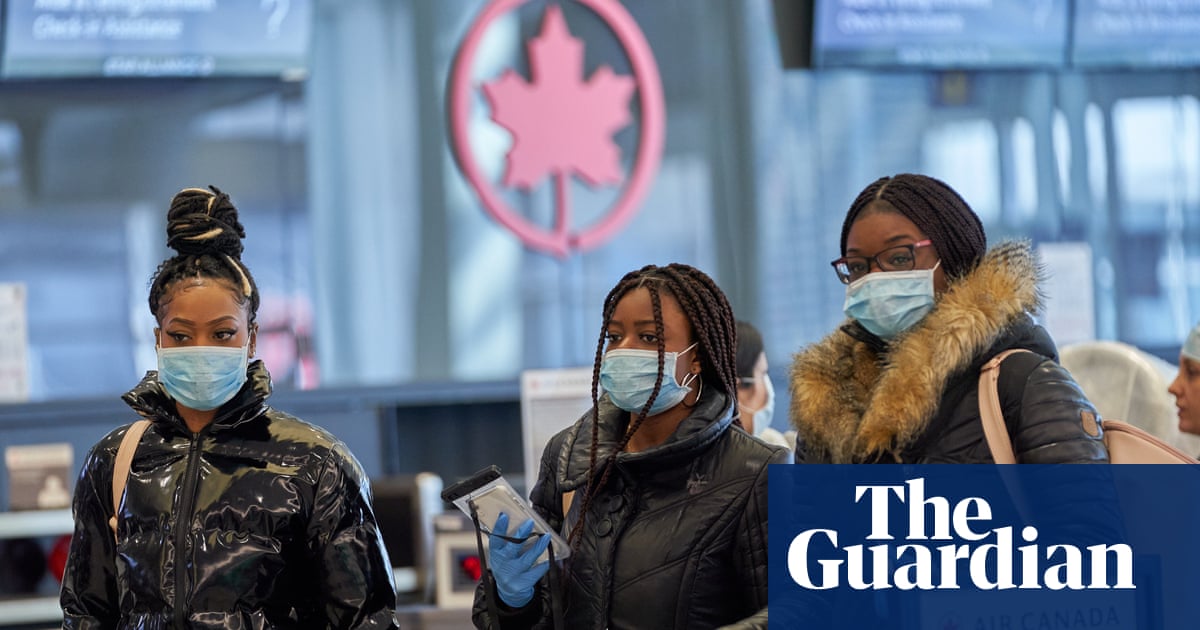As fears grow that flight attendants are at higher risk than previously thought, some workers claim airline is not doing enough

Employees of Air Canada, the countrys largest airline, have said the company is not doing enough to inform customers and staff of their exposure to passengers infected with Covid-19.
And as more flight attendants test positive for the coronavirus, there are growing fears in the company ranks that the risk to flight attendants is higher than previously acknowledged.
On at least one occasion, Air Canada unknowingly carried an infected passenger. Once advised by health authorities of the situation, the companys policy is to inform passengers seated three rows behind and three rows ahead of the infected person and tell staff working in their section.
Flight attendants were told that privacy regulations prevented Air Canada from informing all passengers onboard the flight, according to internal communications seen by the Guardian.
In Canada, it is not the airline but the Public Health Agency of Canada that contacts passengers, Air Canada told the Guardian. This is a clearly delineated public process. It is not the role of the airline.
The company also emphasized that it denies boarding to any passenger exhibiting potentially dangerous symptoms.
Meanwhile WestJet, the companys main Canadian competitor, has publicly announced the flight numbers and seat assignments of Covid-19 infected passengers in recent days, in an effort prevent further transmission of the virus.
Covid-19 has sent the airline industry into a tailspin as more jurisdictions roll out travel restrictions. The International Air Transport Association said airlines could lose at least $113bn this year due to the virus. A number of airlines have laid off huge numbers of workers, and more layoffs are expected.
In a bid to quell travellers panic and to reduce financial losses, some airlines have tried to mitigate the crisis by detailing their preventative cleaning procedures in email newsletters, installing thermal imaging cameras at airport gates and shutting down certain facilities. Many other airlines have laid off thousands of workers, and more layoffs are expected.
While the threat of coronavirus has been widely reported for several months, some Air Canada staff say it has done little to prepare for what the World Health Organization last week determined is a pandemic.
Employees, speaking on condition of anonymity, said their concerns arose at the start of the coronavirus outbreak.
Working in conjunction with the International Air Transport Association, the WHO has set out guidelines for airlines to follow as they combat the coronavirus. Among numerous requirements for extensive cleaning and disinfection of the aircraft, cabin crew are expected to have appropriate personal protective equipment.
But Wesley Lesosky, who represents Air Canada employees within Canadas public workers union (CUPE) told the Guardian that staff lack proper gloves, masks, face shields and disinfectant materials while on the job. Flight attendants come into contact with a lot of things, he said. And they need sufficient protection.
One employee said that the airline is doing more cleaning on some flights but not every flight, as theyre telling the public. A lot of stations dont have the manpower. Theyre just not going to have 30 different people waiting to come and groom every single flight.
The employee said that at some airports, the extra cleaning is only carried out on request, an allegation also made by commenters on a private Facebook group used by flight attendants and seen by the Guardian. The employee said the airline has not planned for longer turnaround times between landings and takeoffs to allow for a deep-enough cleaning.
Frustrations over sanitizing schedules comes amid a growing body of research that suggests the coronavirus is far more tenacious than previously thought.
Air Canada denied staff lacked access to proper equipment and stated that it uses hospital-grade disinfectants for routine surface cleaning and sanitization.
Both on its website and in a written answer to the Guardian, Air Canada says all planes receive sanitization for frequently touched areas including lavatories, galleys and tray tables at the end of a trip, before beginning a new leg. Planes parked overnight receive a full sanitization, including a focus on hard surfaces.
Read more: https://www.theguardian.com/world/2020/mar/18/air-canada-coronavirus-staff-risks


Recent Comments